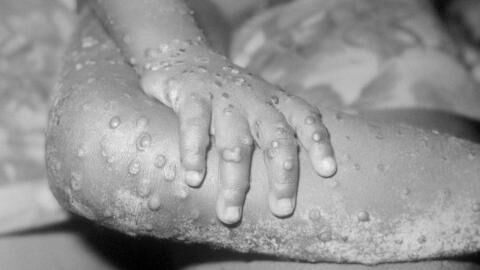Luckily for Brits, the UK’s only established disease that is spread by ticks or mosquitos is Lyme disease. But with changes in the planet’s temperature, this is not likely to remain the case for long. Experts are warning that in 10 years, groups of insects carrying diseases could settle permanently in the UK.
Discover our latest podcast
One such disease is Dengue fever, which is usually found in tropical countries. However, a report issued last week by the European Centre for Disease Prevention and Control (ECDC) documented outbreaks in countries like France and Italy. Symptoms of this disease are often subtle, but it can be deadly in severe cases.
Cases of the virus in France and Italy
The report states that from the beginning of August to the 11 September 2023, 19 locally acquired dengue fever cases have been detected in the Lombardy and Lazio regions in Italy. In France, three clusters of autochthonous dengue virus transmissions have been identified this year.
As the Mirror reports, for the first time ever, Paris had to fumigate parts of the city to kill tiger mosquitoes known for carrying diseases. The report explains:
Since the mosquito vector Aedes albopictus is established in most of Europe, further virus introductions leading to secondary autochthonous transmissions may occur in most of the southern countries of the EU/EEA.
France’s weather conditions have not been so different from Britain’s this year, especially with the recent heat waves, and this is causing concern that cases could be detected soon in the UK.
Dr Owain Donnelly, from the Hospital for Tropical Diseases in London, has said:
With climate change, particularly hotter temperatures and more rainfall, and increasing global trade and tourism, we may see more parts of Europe with the right combination of factors for dengue outbreak.
Deadly virus spreading closer to UK - the nine symptoms you need to know https://t.co/4KbrKV4JdM
— Ross Lawrence (@RoskoLawrence) September 18, 2023
The symptoms of the Dengue virus
The World Health Organization notes that:
Most people who get dengue won’t have symptoms. But for those that do, the most common symptoms are high fever, headache, body aches, nausea, and rash. Most will also get better in one to two weeks. Some people develop severe dengue and need care in a hospital.
In severe cases, the virus can result in bleeding gums, abdominal pain and even death. The scary thing is that there is no specific medicine to treat Dengue.
If you think you have the virus, you should see a doctor and try to rest and hydrate as much as you can in the meantime. You can take paracetamol but the Centres for Disease Control and Preventionadvises that you should avoid aspirin or ibuprofen.
Read more:
⋙ Covid-19: Expert reveals symptoms for Pirola strain could ‘particularly intense’
⋙ The food you eat could be the reason you attract mosquitoes and why their bites itch
Sources used:
Mirror: Deadly virus spreading closer to UK - the nine symptoms you need to know















